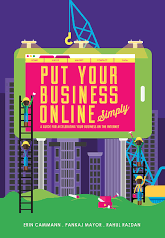What muscles do you need to build to transition from corporate role to a startup ?

The idea of building your own company is very attractive for corporate executives. This sounds great in theory, but the next question becomes what kind of startup exactly? This is the place where building three types of muscles not found in a corporate environment become very important.
Idea Pipeline: In a corporate environment, there is a focus on execution and to a smaller degree on innovation around the strategy of the company. However, when evaluating a potential startup, it is very important to expose yourself to an idea pipeline which stimulates your thinking process. Great techniques for gaining access to an idea pipeline include:
-
Local Research Universities: Connect with the patent licensing office or a research group of your interest. They are looking at the state-of-art, and the licensing function provides great access to leading edge researchers.
-
Angel Investor Groups or in rare cases, local venture capitalists. Both groups are looking for knowledgeable people to help them evaluate investments.
Internal Commitment Process: In a corporate environment, the commitment process for resources is mechanized within the context of the company culture and management. As an individual, one has to build an internal commitment process. Key gates are:
-
Do I believe enough in the idea to devote serious amount of time to it ?
-
Do I believe in the idea enough to risk my reputation with recruiting partners/employees ?
-
Do I believe in the idea enough to risk my reputation with recruiting investors ?
-
Will I change my Linkedin Proflie from the highly branded company to my new venture ?
-
Without a clear understanding of the above, it is very common for executives to drift from idea to idea.
Managing the Intellectual vs Emotional: Working within a corporate environment, a number of norms over the years are absorbed into the psyhe of the executive. These include:
-
positional power relative to colleagues
-
external recognition based on working for highly branded company
-
getting a regular salary and emotionally believing it will always be there
-
For all of the above, it is best to overcome these emotional "norms" as quickly as possible. Warning: this will NOT be easy which is why working on it from an intellectual point-of-view is very important.
Finally, many executives use the term "consulting" as a euphemism for this transition period, however, interestingly, being very serious about the "consulting" business is a good way to move through the transition. What does this mean ? Go through the effort of setting up a website/store-front, and develop/discover your own unique differentiated value in the marketplace.


